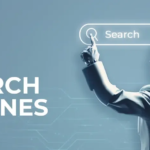Artificial intelligence (AI) is no longer a futuristic concept but a tangible force reshaping industries and societies worldwide.
Its rapid evolution promises unprecedented advancements, yet it also casts a long shadow of uncertainty over the future of work.
The AI Revolution: A Double-Edged Sword
The trajectory of AI development is nothing short of astonishing. Breakthroughs in machine learning, natural language processing, and computer vision have empowered AI systems to perform tasks once deemed exclusively human. From autonomous vehicles to medical diagnoses, AI’s applications are expanding at an exponential rate.
However, this technological revolution is a double-edged sword. While AI holds the potential to revolutionize industries, increase productivity, and solve complex global challenges, it also raises profound questions about the future of employment. The specter of job displacement looms large, as automation threatens to replace human labor in various sectors.
Job Displacement and the Need for Reskilling
The fear of job loss due to automation is not unfounded. Routine and repetitive tasks, particularly in manufacturing and customer service, are increasingly being automated. This trend has led to concerns about mass unemployment and economic instability.
To mitigate the negative impacts of automation, a concerted effort is required to reskill and upskill the workforce. Investing in education and training programs is crucial to equip workers with the skills needed to thrive in an AI-driven economy. This includes developing competencies in areas such as data analysis, problem-solving, critical thinking, and creativity.
Furthermore, governments and businesses must collaborate to create supportive environments for workers undergoing transitions. This involves providing unemployment benefits, job placement services, and retraining opportunities. By fostering a culture of lifelong learning, societies can better adapt to the changing nature of work.
The Creation of New Job Roles
While AI may eliminate certain jobs, it is also creating new opportunities. The development and deployment of AI systems require a skilled workforce with expertise in data science, machine learning, and AI engineering. As AI becomes more integrated into various industries, demand for professionals who can understand, develop, and manage AI technologies will continue to grow.
Moreover, AI has the potential to create entirely new job categories. For instance, AI ethics officers will be essential to ensure that AI systems are developed and used responsibly. AI trainers will be needed to teach AI systems how to perform specific tasks. And AI auditors will play a crucial role in verifying the accuracy and fairness of AI algorithms.
The Ethical Imperative
The development and deployment of AI must be guided by strong ethical principles. Bias in AI algorithms is a significant concern. If training data is skewed, AI systems may perpetuate discriminatory outcomes. Ensuring fairness and equity in AI requires careful consideration of data selection, algorithm design, and ongoing monitoring.
Privacy is another critical issue. As AI systems increasingly rely on vast amounts of personal data, protecting individuals’ privacy becomes paramount. Striking a balance between data utilization and privacy protection is essential to build trust in AI technologies.
Furthermore, the development of autonomous weapons raises serious ethical questions. The potential for AI-powered systems to make life-or-death decisions without human intervention is a troubling prospect. International cooperation is needed to establish ethical guidelines and regulations for the development and use of autonomous weapons.
The Road Ahead
The future of work in an AI-driven world is complex and uncertain. While challenges undoubtedly exist, the potential benefits of AI are immense. By proactively addressing job displacement, investing in education and training, and prioritizing ethical considerations, we can harness the power of AI for the betterment of society.
Ultimately, the success of AI will depend on our ability to adapt, learn, and collaborate. By fostering a human-centric approach to AI development and deployment, we can create a future where technology serves as a tool for human progress rather than a threat to it.










